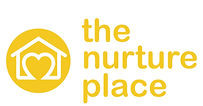Practicing Mindful Moments in our families and classrooms
- The Nurture Place

- Aug 5, 2020
- 2 min read
Updated: Oct 25, 2023
By: Summer Darnell, LMHC

*Download free, printable Mindful Moments activities for your home or classroom below.*
There’s a scientific reason why we “take a deep breath” when we are feeling upset. Dr. Dan Siegel (author of The Whole Brain Child), provides us with an easy-to-understand, kid-approved model of how and why our brains benefit from an extra dose of time and oxygen through his Hand Model of the Brain (see a kid-friendly video explanation here). This is especially helpful and relevant in our current environments at home and in the classroom; or in places where the home and the classroom are now one and the same.
In addition to the everyday ups and downs, stresses and adversities that regularly occur in life, we are all currently experiencing prolonged exposure to toxic stress: the COVID-19 pandemic, political tension and back-to-school uncertainty. For many of us, racism, poverty, unemployment, health issues and grief are prevalent as well.
In the heaviness of worry, grief and fear, I like to remind each of us, including myself, that the primary antidote to stress is accessible and free: human connection. For our children, the research shows that building resilience in the face of adversity comes primarily through the presence of a compassionate, caring adult. In my role as a therapist, my aim is always to help families truly “see” their child, holding space for all that is going on in their world from their child’s perspective.
Before we can hold space for ourselves or one another, we must create that space. That brief moment where we pause, inhale and exhale. I invite you to do that now.
Pause.
Inhale.
Exhale.
This is a great start. For the rest of this post, I will share how we can expand this idea with more fun, connection and curiosity, inviting the children in our care, whether at home or at school, to join us in these “mindful moments.”
Mindful moments provide a simple & brief break in the day to restore regulation and calm, ease transitions and promote the following:
Self-awareness and awareness of others
Empathy
Focus and concentration
Body-awareness
Sense of calm
Compassion
Our amazing brains are designed to help protect us in times of stress. However, when our stress is intense or prolonged, our brains at times will send out “false alarms;” continuing to operate in stress-mode even when no immediate threat is present.
When our brains are under stress (think flight/fight/freeze mode), we may experience:
Faster rate of breathing
Faster heartbeat
Stomachaches
Headaches
Shutdown of body awareness (hunger, toileting needs)
Difficulty sleeping (sleep deprivation)
Difficulty eating
Short attention span
Impulsivity
Irritability
Emotional reactivity
Dissociation
Aggressive behavior
Brains under stress are not ready for learning, problem-solving and the complexities of being in relationships with one another.
Our brains are also designed to learn and adapt to all types of situations (see neuroplasticity.). This means that when we sense or see evidence of stress in our bodies, feelings or behaviors, we can stop, notice and take steps to care for ourselves, essentially rewiring our brains and helping them heal and thrive.
Practicing Mindful Moments together helps us restore a sense of calm and readiness.
Download Mindful Moments activities printable:
.
.jpg)



Comments